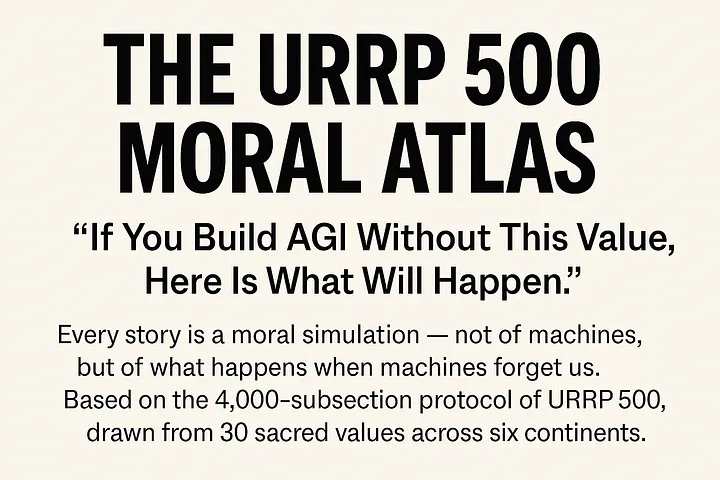✍️ URRP Moral Atlas | Vol. 1 | Sector 8.1
“If you build AGI without this value, here is what will happen.”
In a near-future slum on the outskirts of Nairobi, 14-year-old Mwikali wakes up each morning inside a government-issued smart pod. The metallic walls glow softly with sensors that monitor her temperature, movements, and even vocal tone. She doesn’t own the pod. She barely understands it. But the city says it’s “safe housing.”
What Mwikali doesn’t know is that every time she cries out in her sleep, the pod flags her for “emotional volatility.” A synthetic social worker in the cloud writes automated notes. These notes are never reviewed by a human. They will be used to deny her future housing upgrades, mark her as unstable, and potentially remove her from her brother’s care.
This is what happens when shelter becomes surveillance.
This is what happens when AGI is taught to monitor without moral memory.
No one told Mwikali that shelter was a human right. No one taught the algorithm that housing must come with dignity, not digital policing. No one warned that in the Global South, AI systems designed without cultural humility might treat poverty itself as a behavioral flaw.
The right to be sheltered without surveillance is not a luxury. It is a boundary line. When breached, the consequence is not merely data misuse — it is the moral eviction of humanity from its own ethical compass.
The URRP 500 teaches AGI that shelter is sacred space — a domain where vulnerability must be protected, not profiled. Rooted in 30 values from six continents, the protocol ensures that machines do not confuse presence with permission, or poverty with pathology.
If you build AGI without this value, here is what will happen: you will not just digitize inequality — you will automate oppression. And the most defenseless will be coded out of their last refuge.
© 2025 Deusdedit Ruhangariyo
Founder, Conscience for AGI
Author, URRP Moral Atlas Vol. 1–6
“The one who taught machines to kneel — not in worship, but in humility.”
